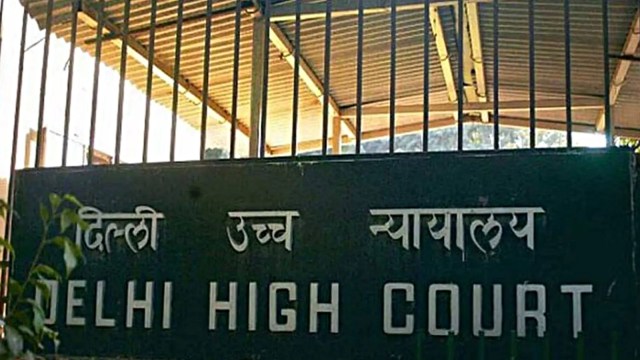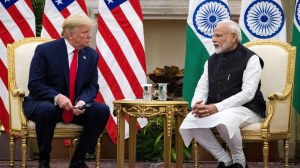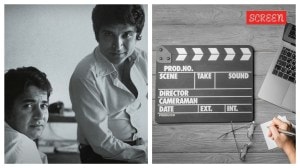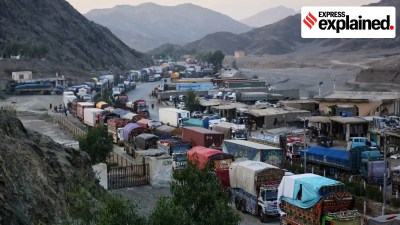Delhi HC orders Bar Council of India to grant enrolment to Korean lawyer in 2 days: ‘You can’t be so rigid now’
BCI had refused to consider South Korean national Daeyoung Jung’s enrolment in the Bar in 2019 as he is a foreign national; as per the court order, the deadline for BCI to issue the enrolment ends today.
 However, as per the court order, the deadline for BCI to issue the enrolment ends on Thursday.
(Source: File)
However, as per the court order, the deadline for BCI to issue the enrolment ends on Thursday.
(Source: File)The Delhi High Court on Tuesday rapped the Bar Council of India (BCI) for withholding the Bar enrolment of a South Korean national and directed the lawyers’ body to get him enrolled “immediately” within two days.
However, as per the court order, the deadline for BCI to issue the enrolment ends on Thursday.
The direction from the Division Bench of Justices Prathiba Singh and Rajneesh Kumar Gupta came in an appeal filed by the Bar Council of India in 2023, challenging a Single Judge’s verdict quashing a BCI order of July 23, 2020, where it had refused to consider the South Korean national, Daeyoung Jung’s enrolment in the Bar.
Jung completed his law degree from the National Academy of Legal Studies & Research (NALSAR) in Hyderabad in 2016 and thereafter started working in the public policy sector in Invest India, a non-profit governmental organisation under the Department for Promotion of Industry and Internal Trade (DPIIT). Jung had approached the Bar Council of Delhi in February 2019 where he was informed that he could not be enrolled under the Advocates Act as he is a foreign national.
Following the rejection from BCI, Jung moved the Delhi High Court in 2020, following which a Single-Judge Bench ruled in his favour in May 2023, directing BCI to process his enrolment.
The Single-Judge Bench had held that there exists no nationality bar disentitling Indian citizens, who are otherwise qualified, from practising law in South Korea, and that any individual could take the bar exam and practice law in South Korea.
Nearly 22 months later, Jung remains to be enrolled after BCI appealed against the order.
However, a Division Bench of Justices Prathiba Singh and Rajneesh Kumar Gupta on March 18 ruled that in the “absence of any stay” on the Single Judge’s order of May 2023, “withholding the enrolment of (Jung) would not be permissible.”
The Bench, while hearing the matter on March 18, expressed its displeasure with BCI’s inaction.
Addressing BCI, Justice Singh orally remarked, “He has been in India for 16 years, he has studied in NALSAR, what are you saying? You give him the enrolment. This is absolute contempt by the Bar Council, you can’t do this. Why did you withdraw the result? You are affecting his right to practice. This is very serious.”
Justice Singh further went on to remark, “See in most countries of the world, there is no bar of nationality…There are many children in India today who are born to NRI citizens…These things have become very fluid…you can’t be so rigid now…you can’t do this..this can’t be done.”
BCI has contended that the pre-requisite for enrolment of foreign applicants is the existence of reciprocity between India and the foreign country of which the applicant is a citizen, regarding treatment of similarly placed persons/advocates. The BCI, till date, has not responded to the court. In this regard, on the reciprocity arrangement between South Korea and India. Even on March 18, BCI told the court that it has not received instructions on the reciprocity given to Indian lawyers by South Korea.
In July 2023, the BCI chairman and senior advocate Manan Mishra, arguing the appeal, had told the court that allowing Jung to practice in India would “open a floodgate,” adding that this may later result in the entry of lawyers from Pakistan and Nepal into India.
In March 2023, BCI had issued a notification essentially allowing foreign lawyers and law firms to register with BCI to practise in India if they are entitled to practise law in their home countries. However, while they cannot practise Indian law and cannot appear in court, they can advise clients on foreign law and work on corporate transactions. Indian lawyers working with foreign law firms will also be subject to the same restriction of engaging only in “non-litigious practice” as per the BCI’s 2023 notification.







